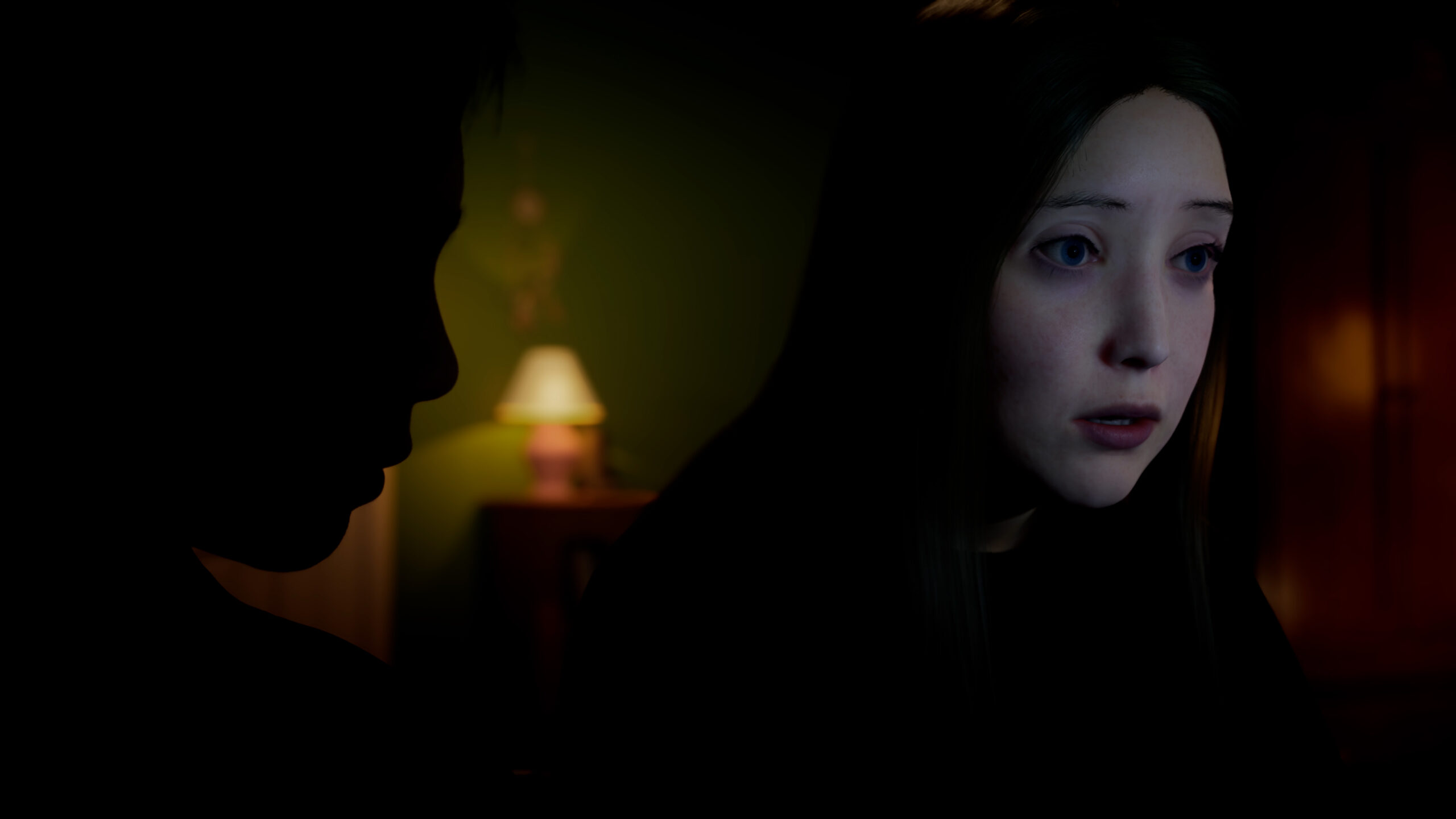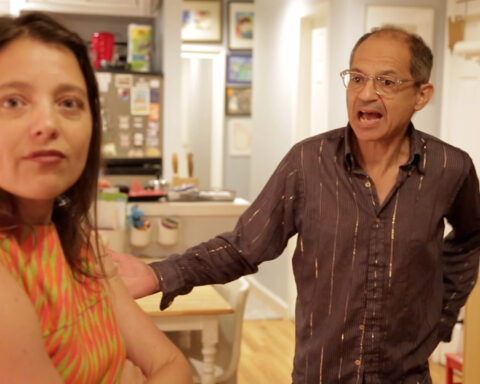American Symphony
(USA, 103 min.)
Dir. Matthew Heineman
Section: Short List: Features (New York City Premiere)
As singer/songwriter/composer Jon Batiste walks the red carpet at the 2022 Grammy Awards, his partner, Suleika Jaouad, watches from afar. Though the night is a professional triumph for Batiste, who goes on to win five awards including the coveted Album of the Year for We Are, it comes at a time of significant personal hardship for the two; Jaouad, an accomplished author and musician in her own right, is fresh out of treatment for recurring leukemia after a decade in remission. She watches the Grammys from her home, still recovering from a bone marrow transplant and several months in the hospital, and cheers along with the crowd as Batiste performs his hit single, “Freedom.” As Batiste wobbles and shakes his way across the stage with explosive energy, his already iconic performance assumes new depth. The man’s brand of unfiltered positivity is unwavering, even during what may be the most emotionally difficult moment of his young life.
This dichotomy is at the center of American Symphony, a new documentary from director Matthew Heineman (Retrograde, City of Ghosts) that tracks Batiste and Jaouad’s journey balancing a year of career highs amidst intense physical lows. The film takes its title from the sprawling, four-movement piece that Batiste debuted at Carnegie Hall in 2022, which acts as the film’s structural centrepiece. He begins conceiving the symphony just as Jaouad prepares to restart treatment. “I’m always making things,” Batiste observes in the film’s opening voiceover, towing the line between interview and narration. “It’s how I process the things going on in my life.” It has become achingly apparent that those who bring us the greatest joys are also the ones who suffer the greatest hardships and, as observed by Heineman, this is by design.
However, Batiste may be taking on more than he can chew. He is still the band leader on The Late Show with Stephen Colbert and, at the time he begins the symphony, he has only just begun preparing for the Grammys. And then, of course, there’s Jaouad’s transplant, which has additional risks when being done for a second time. It’s a lot to handle and, through intimate vérité cinematography and minimal stylistic distraction, we get a long look into Batiste’s complex mental state. The musician’s Muppet smile and New Orleans charm would have you believe he’s happy-go-lucky all of the time, but Heineman effectively demystifies this persona with a heartfelt dose of raw, honest humanity. Two striking moments portray Batiste hyperventilating in extreme close-up as he endures panic attacks. In another moment, he spends almost the entirety of a vulnerable therapy session with his head underneath a pillow.
The film is a strong portrait of Batiste, but Jaouad is left on the periphery. This is, of course, a product of reality, as she spends much of the film confined to a hospital bed or recovering at home. However, the documentary presents the story as a two-hander and attempts to centre her in the narrative. She gets her own montage of backstory, several moments shared with Batiste, and even some time portraying her own artistic pursuits. Side effects from surgery leave Jaouad’s vision blurred, which does not allow her to exercise her typical artistic muscles of reading and writing. She takes to painting instead, translating fever dream-inspired visions onto canvas. It’s a compelling aspect of her recovery, to the point that it could be its own documentary. Yet, in the film’s immense balancing act, it receives little screentime.
This speaks to what is ultimately a larger issue for American Symphony. The film’s hour and 40 minute runtime is packed to the brim with different conundrums: maintaining mental health, the unfair standard Black performers are held to, Batiste’s controversial genre-blending, the lack of privacy in being a celebrity, and more. In its attempt to cover all of this, the film compounds much of its story. Many montages are chopped together like music videos, stripped of nuance and emotional tenor. One sees Batiste touring while Jaouad is seeing some of her worst days in the hospital; the juxtaposition is striking but haphazardly edited and restricted to Jaouad on phone calls – ironic given Heineman’s level of access is some of the best you’ll see in a documentary this year. The symphony itself, as well, suffers. We keep coming back to Batiste rehearsing the work, yet less is gleaned each time. The film’s need to convey the amount of events without properly living in them fails to inspire consistent emotional resonance.
It doesn’t take long to realize that the film, at least at its strongest, isn’t really about the symphony, nor Batiste alone. It’s about the couple. The film’s strongest moments, a long take of Batiste performing a song dedicated to Jaouad, or Jaouad herself finally being discharged from of the hospital after months bed-ridden, evoke a spirituality in these subjects that exists beyond what’s in-frame. Their tender, honest, and loving relationship feels boundless in its potential to inspire gorgeous images like these. However, the film is plainly stated in its themes and styles and, as a result, suffers from a monotony that, while reflective of the film’s sobering perspective on life’s highs and lows, translates to an imperfect, if moving, final product.














